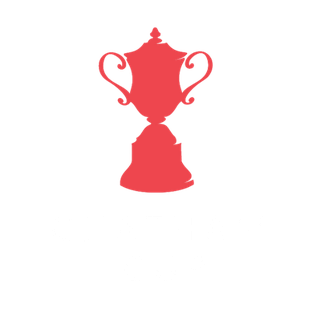Related Research Articles

The Chatham Cup is New Zealand's premier knockout tournament in men's association football. It is held annually, with the final contested in September. The current champions of the Chatham Cup are 2023 winners Christchurch United, who defeated Melville United AFC on penalties in the final.
The New Zealand National League is the name given to the current New Zealand top football competition. Originally set up as the New Zealand National Soccer League there has been many versions of the competition as well as many different names. The most common format saw club teams play each other, at least two times, on a home and away basis. At the completion of those games, the best-performing team was declared as the New Zealand champion. The latest version has the clubs play in their regional leagues with the top teams qualifying for the Championship phase to then play each other for the champion.

The Central League is an amateur status league run by Capital Football for association football clubs located in the southern and central parts of the North Island. It is a New Zealand top-tier competition during the winter season, and sits at step two overall under the summer National League.
The 1985 Chatham Cup was the 58th annual nationwide knockout football competition in New Zealand.
The 1983 New Zealand National Soccer League was the 14th season of a nationwide round-robin club competition in New Zealand football. Manurewa comfortably won the league for the first time, finishing eight points clear of second-placed Hanimex North Shore United. This was the first season in which a win scored three points; prior to this they were worth only two.
In 1999, two New Zealand island soccer leagues were run to replace the National Summer Soccer League which had finished at the end of the 1998 season. The two leagues, one for the North Island and one for the South Island were followed by a play-off between the two champion sides to determine the national champions. The games were mainly played during winter, in direct contrast to the previous summer league.
The 2000 New Zealand National Club Championship, also known, due to naming-rights sponsorship, as the Ansett National Club Championship was the inaugural season of a nationwide club competition in New Zealand football. It replaced the 1999 New Zealand island soccer leagues and was a re-formed version of the national soccer league which had been run from 1970 to 1992. The competition was won by Napier City Rovers.
The 2002 New Zealand National Club Championship, also known, due to naming-rights sponsorship, as the Southern Trust National League was the third season of a nationwide club competition in New Zealand football. The competition was won by Miramar Rangers.
The 2003 New Zealand National Club Championship, also known, due to naming-rights sponsorship, as the Southern Trust National League, was the fourth and final season of a nationwide club competition in New Zealand football. The competition was won by Miramar Rangers.
The 2017 Chatham Cup was New Zealand's 90th annual knockout football competition.
The 2016 Chatham Cup was New Zealand's 89th annual knockout football competition.
The 2018 Chatham Cup is New Zealand's 91st annual knockout football competition.
The 2019 Chatham Cup is New Zealand's 92nd annual knockout football competition.
The 2013 ASB Chatham Cup was New Zealand's 86th knockout football competition.
The 2021 Chatham Cup is New Zealand's 93rd annual knockout football competition.
The 2014 Chatham Cup was New Zealand's 87th annual knockout football competition.
The 2022 New Zealand Men's National League is the second scheduled season of the National League since its restructuring in 2021; the 2021 National League was cancelled due to the COVID-19 pandemic in northern regions. 32 clubs compete in the competition, with four qualifying from the Northern League, three qualifying from the Central League and two qualifying from the Southern League for the National Championship phase. Each team can field a maximum of four foreign players as well as one additional foreign player who has Oceania Football Confederation nationality. Each team must also have at least two players aged 20 or under in the starting eleven.
The 2022 Chatham Cup is New Zealand's 94th annual knockout football competition.
The 2022 Kate Sheppard Cup was New Zealand's women's 28th annual knockout football competition. This was the fifth year that the competition is known by the Kate Sheppard Cup, or New Zealand Football Foundation Kate Sheppard Cup for sponsorship purposes, after previously been known as the Women's Knockout Cup since its establishment. The cup has had thirteen different winners lift the trophy over its 28-year history with Lynn-Avon United from Auckland being the most successful and Wellington United being the current holders from the 2021 season.
The 2024 New Zealand Men's National League will be the fourth season of the National League since its restructuring in 2021. 32 clubs compete in the competition, with four qualifying from the Northern League, three qualifying from the Central League and two qualifying from the Southern League for the National Championship phase. Each team can field a maximum of four foreign players as well as one additional foreign player who has Oceania Football Confederation nationality. Over the course of the season, each team must also ensure players aged 20 or under account for 10% of available playing minutes.
References
- 1 2 3 4 "New Zealand 2001". RSSSF . Retrieved 11 April 2019.
- ↑ "New Zealand 2000".